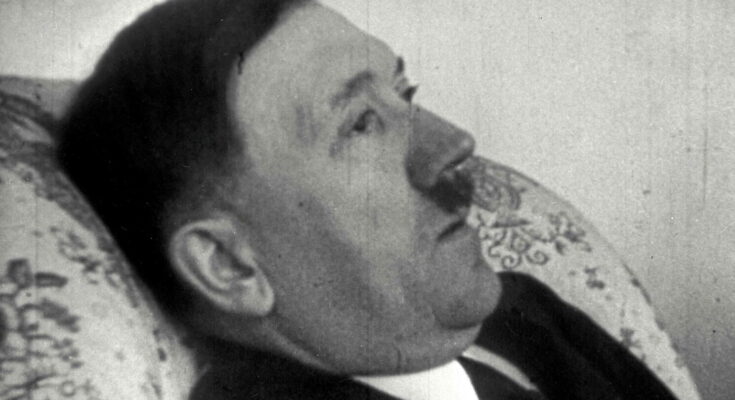LThe story is nothing new. During World War II, a popular song claimed that Hitler only had one testicle. Science can confirm this information about the intimate anatomy of the Nazi dictator.
In the United Kingdom, Channel 4 broadcast a program on Saturday, 15 November 2025, devoted to the analysis of Adolf Hitler’s DNA. In this program entitled Hitler’s DNA: A Dictator’s BlueprintScientists have revealed a lot of information about the Nazi leader’s health. It all started with the analysis of a blood-stained piece of cloth that came directly from the sofa where he committed suicide on April 30, 1945.
Genetic predisposition
Thanks to this analysis, researchers concluded that Hitler indeed suffered from a “genetic disorder” that affected the development of his sexual organs. Specifically, he most likely suffered from what is called “Kallman” syndrome. This syndrome was first described in 1944 by Franz Josef Kallmann, a German geneticist. Based on available data, the prevalence is approximately 1/8,000 boys and 1/40,000 girls, but in reality it is of course much higher.
This syndrome can prevent one or both testicles from descending. In 1923, a medical report indicated a problem with Hitler’s right testicle. Specifically, the disease is manifested by low testosterone levels and abnormal development of the sexual organs, which can result in the presence of micro-penis. As explained by the site Orphanet which specializes in rare diseases, Kallman syndrome occurs due to defects in the development of the olfactory system and the migration of embryos from the olfactory epithelium to the hypothalamic region of the brain.
The testicles and micropenis are not descended
This syndrome is caused by a genetic mutation that affects the development of the hypothalamus. “Most of the reported cases are sporadic, but familial forms have been described. The gene responsible is as follows: KAL1 (Xp22.32), is autosomal recessive and oligogenic.
In the majority of patients, cases are diagnosed around puberty due to lack of sexual development. However, Kallmann syndrome can be suspected in childhood in boys who “experience cryptorchidism (or undescended testicles), micropenis, or absence of secondary sexual characteristics,” explains Orphanet. Before finishing: “The main clinical characteristics are the complete absence of spontaneous puberty and partial or total alteration of the sense of smell (anosmia) in both sexes. In untreated adult males, decreased bone density and muscle mass, testicular atrophy (
The Academy of Medicine lists other possibly associated anomalies as “mirror movements of the upper extremities, unilateral (or sometimes bilateral, nonviable) renal aplasia, cleft lip or palate, dental agenesis, deafness.”
ADHD, autism, and schizophrenia
Analysis of pieces of cloth containing Adolf Hitler’s DNA also revealed other valuable information. Among the results, the test revealed that the Nazi dictator had a “higher than average likelihood” of having ADHD as well as a “high likelihood” of exhibiting certain autistic behaviors. The dictator also had “antisocial behavioral tendencies” and was “likely to suffer from schizophrenia.”
The researchers tempered these results and determined that these issues should not be an explanation for the policies pursued by the Nazi leadership. “We can’t say for sure that Hitler suffered from any of these diseases, only that he was in the highest percentile in terms of genetic predisposition to some of them,” added geneticist Turi King, interviewed by the Guardian.
To find
Kangaroo today
Answer
Scientists warn of the dangers of stigmatization of people affected by this disorder. “One of the messages we geneticists are trying to convey is that genetic determinism is wrong,” says Turi Kuring. But the film’s editors clearly took liberties without taking this caveat into account in the final cut of the show.
The same caution was expressed by psychology professor Simon Baron-Cohen, who is quoted in the documentary: “Attributing Hitler’s extreme cruelty to people suffering from this disorder risks stigmatizing them.” In the UK, not all media outlets agree on the interest in such documentaries. The New Scientist attacked the film as “sensationalist” and the Guardian sanctioned a documentary of “questionable” taste.



